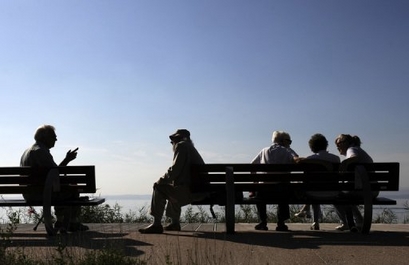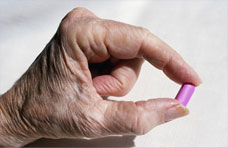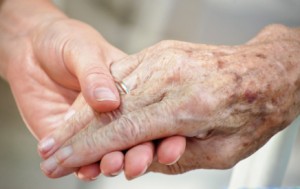Many assisted living or nursing home facilities emphasize structure and rules to provide stability for residents and ease of care for staff members, but some facilities are trying new and unique approaches. Our San Diego nursing home attorney knows how important it is for your loved ones to receive personalized attention and care, as well as top-notch medical treatment. Two stories recently caught our interest not only for the unique treatments they presented, but also for their positive perspective on providing innovative elder care.
At some facilities, “therapy dogs” and other animals are used to bring joy to nursing home patients. According to a local ABC news station in Ohio, residents at a skilled nursing facility recently received a visit from Gremlin, a 7-year-old pit bill rescue and certified therapy dog. Gremlin, a former a bait dog in a dog-fighting ring, was terribly abused before she was rescued. She can no longer bark and is partially deaf. Although the pit bull may seem intimidating at first, residents quickly warmed to Gremlin’s sweet demeanor and face licks. A staff member reported that residents’ faces lit up as soon as the dog walked into the room and that the dog’s presence prompted most residents to come out of their rooms and be social. One resident marveled at Gremlin’s ability to give love after being so horribly abused, reminding patients and staff alike that love and affection truly can be the best medicine.
Another nursing home also uses a form of alternative therapy. Beatitudes, a nursing facility located in Arizona, has an unusual philosophy: “To let patients do what they want.” The facility was originally created to provide care to seniors who prefer independent living options, but Beatitudes also provides more advanced care if needed, such as home care services and assisted living.
For Alzheimer’s residents in particular, Beatitudes offers a unique approach because residents are encouraged to pursue the activities they prefer and enjoy, which could include playing the piano, eating what they wish, or participating in arts and crafts. According to a local NBC station in Arizona, experts at the Beatitudes facility say that one of the mistakes caregivers often make is not incorporating Alzheimer’s patients’ previous passions into their everyday lives.
The staff at Beatitudes is trained to listen to their patients, to let them make their own decisions, and to show them love and support. They also aim to create positive emotional experiences for Alzheimer’s patients, which, research suggests, reduces stress and behavioral problems. For example, if an Alzheimer’s patient asks where her deceased husband is, a staff member may respond that “he can’t be here right now” instead of “he died four years ago.” Such a response answers the patient’s question without forcing her to relive the pain.
 Residents at Beatitudes still receive the medical treatment ordered by their doctors. However, the staff attempts to remove discomforts (e.g. deep-seated wheelchairs that make it more difficult for patients to stand up) and reviews residents’ biographies in order to make them feel at home.
Residents at Beatitudes still receive the medical treatment ordered by their doctors. However, the staff attempts to remove discomforts (e.g. deep-seated wheelchairs that make it more difficult for patients to stand up) and reviews residents’ biographies in order to make them feel at home.
Unlike many negligent nursing homes, Beatitudes has also drastically reduced the distribution of antipsychotics and certain medications. The staff also tries to encourage activities that will foster group participation and interaction between patients, staff, and family members, such as block building and coloring. Under the Beatitudes approach, residents and their families report a better quality of life, less staff turnover, and lower costs.
Continue reading
 California Nursing Home Abuse Lawyer Blog
California Nursing Home Abuse Lawyer Blog






 Residents at Beatitudes still receive the medical treatment ordered by their doctors. However, the staff attempts to remove discomforts (e.g. deep-seated wheelchairs that make it more difficult for patients to stand up) and reviews residents’ biographies in order to make them feel at home.
Residents at Beatitudes still receive the medical treatment ordered by their doctors. However, the staff attempts to remove discomforts (e.g. deep-seated wheelchairs that make it more difficult for patients to stand up) and reviews residents’ biographies in order to make them feel at home. At a time when reports of elder abuse are on the rise across the nation, our
At a time when reports of elder abuse are on the rise across the nation, our 










